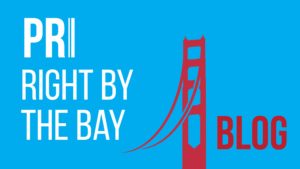Read PRI’s “Right by the Bay”: Could Mark Cuban’s new pharmaceutical venture be a slam dunk?
By Wayne Winegarden and Celine Bookin
Billionaire investor Mark Cuban’s pharmaceutical company, the Mark Cuban Cost Plus Drug Company, is hoping to disrupt the pharmaceutical benefit management (PBM) industry with a new venture that seeks to address some of the most criticized practices of the industry. These include PBMs pocketing rather than passing on negotiated rebates and not being transparent in how they negotiate said rebates.
PBMs traditionally contract with governments and businesses to manage drug formularies, determine co-pays, administer plans, and negotiate price discounts with manufacturers on behalf of insurers and other payers. Since their compensation is based on the size of the negotiated discount, PBMs typically prefer drugs with high list prices that are offset with large rebates. Due to their control over the formulary and their large enrollee networks, manufacturers have a strong incentive to comply. The result has been the rapid growth in drug list prices but decline in the drug’s net price.
PBMs also earn a profit through Direct and Indirect Remuneration fees (DIRs) and copay clawbacks. DIR fees are payments made by pharmacies to PBMs and include penalties and charges to the pharmacy. PBMs deduct these fees by reducing upcoming reimbursements to the pharmacy (with little to no notice) or by clawing back the fee directly from the pharmacy’s bank account.
Copay clawbacks result when a patient’s copay is higher than the price of the drug in question. The pharmacy receives the patient’s copay, and the PBM subsequently claws back the money above the reimbursement price, and pockets that profit.
PBMs have also been criticized for their lack of transparency, which is most clearly evident in a practice called spread pricing. Spread pricing occurs when PBMs pocket the difference between the compensation they receive from health plans and the price they pay pharmacies. Only through investigative reporting and audits has information come to light about just how much PBMs make through spread pricing.
For instance, an Ohio state audit revealed that PBMs charged the state a spread of over 30 percent for generic drugs in one year alone. Similarly, PBMs have been critiqued for not disclosing all the rebates they negotiate, which makes it difficult to analyze just how much of the savings the PBMs are keeping.
Needless to say, the industry is ripe for disruption – and Cuban’s PBM could be just what the doctor ordered. According to the Wall Street Journal, Cuban’s PBM aims to share its operating cost details and 100 percent of the negotiated rebates with clients. The PBM will make its profit by launching an online pharmacy, where it will sell commonly prescribed generic drugs. The pharmacy will charge customers a 15% markup and a $3 dispensing fee.
Those are admirable goals, but Cuban will also need a strong offensive strategy to break into the PBM industry; as it stands, the three largest PBMs control almost 80% of the market in the US.
If Cuban’s PBM succeeds in its stated goals, it could be an underdog story for the books – particularly the pocketbooks of Americans.
Dr. Wayne Winegarden is the director of the Center for Medical Economics and Innovation at the Pacific Research Institute. Celine Bookin is a PRI junior fellow in health care policy.


